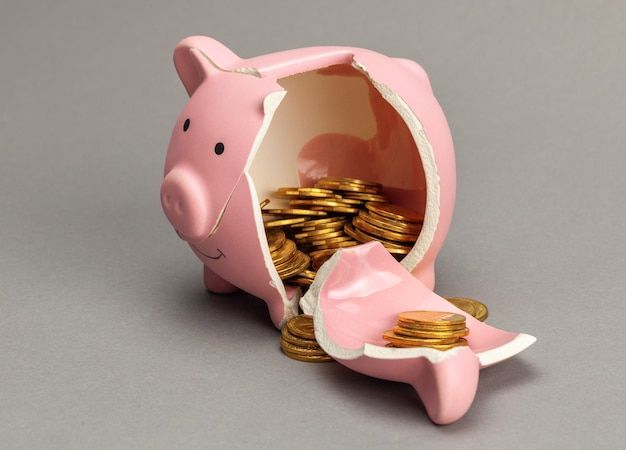Behind the glamour of unicorn valuations and billion-dollar exits lies a stark truth: many startups remain broke forever. They are not bankrupt, but neither are they thriving. They exist in a perpetual state of financial struggle barely covering payroll, endlessly chasing investors, and failing to generate true profitability.

The issue is not always lack of talent or ambition. Often, it stems from flawed financial models, poor market fit, and founder blind spots. Understanding these traps is essential not only for survival but for building a company that actually creates wealth instead of draining it.
Mistake 1: Confusing Revenue With Profit
Too many founders celebrate hitting seven-figure revenue while ignoring the fact that expenses are eating every cent. A 2023 CB Insights report noted that 38% of startups fail because they run out of cash, often due to unchecked spending.
Example: Food delivery startups often post impressive revenue figures, but razor-thin margins and subsidized discounts leave them in a cycle of cash burn with no clear path to profitability.
Takeaway: Cash flow not top-line revenue is the true indicator of financial health.
Mistake 2: Chasing Investors Instead of Customers
In some startup ecosystems, raising funding has become the badge of success. Yet, a focus on VC rounds rather than customer acquisition leaves many startups dependent on external capital. When funding dries up, so does the business.
Case Study: WeWork’s implosion in 2019 remains a cautionary tale lavish spending fueled by investor cash but a shaky business model meant the company burned billions while staying structurally unprofitable.
Takeaway: Investment is fuel, not the engine. Without customers paying sustainably, no amount of funding saves a startup.
Mistake 3: Building Without Market Fit
A brilliant product does not guarantee financial success. Startups that fail to solve a real, painful problem for a sizable audience will always struggle to monetize.
According to Startup Genome’s 2022 Report, 42% of startups fail due to lack of market need. That means nearly half of founders are building solutions nobody asked for.
Example: Juicero, the $400 machine that squeezed juice packs you could squeeze by hand, raised $120 million before becoming the poster child of solving a non-problem.
Takeaway: Validation before scale is the only path to financial stability.
Mistake 4: Neglecting Unit Economics
Startups often obsess over “growth hacking” but ignore whether each transaction adds value or subtracts from it. If a business loses money on every sale, scale only multiplies the loss.
Insight: Uber has spent years grappling with unprofitable rides in many markets, subsidizing fares to win users but struggling to make per-ride economics work.
Takeaway: Healthy unit economics are the foundation of long-term survival.
Mistake 5: Founder Ego and Lifestyle Inflation
Some startups remain broke because founders treat the company as an extension of personal ambition or lifestyle. Luxurious offices, inflated titles, and vanity projects drain resources while adding little to the bottom line.
Expert View: Entrepreneur and investor Mark Cuban warns, “Sales cure all. There’s never enough cash in the bank if you’re not focused on making money.”
Takeaway: Discipline, not ego, keeps a startup solvent.
Breaking the Cycle: How Startups Build True Wealth
- Focus on cash flow: Track every dollar, prioritize profitability early.
- Put customers before capital: Treat revenue as proof of market fit, not fundraising.
- Validate before scaling: Test small, scale only when you know people will pay.
- Master unit economics: Ensure every sale contributes to growth.
- Stay lean: Operate as if every dollar matters because it does.

Conclusion: Wealth Is Built, Not Funded
Some startups will stay broke forever because they confuse hype for health and growth for profitability. The companies that break free are those that respect money as a finite resource, treat customers as their primary investors, and prioritize long-term sustainability over short-term vanity.
For founders, the hard truth is this: if you do not design your startup to make money, it never will. And no amount of funding can fix that.






